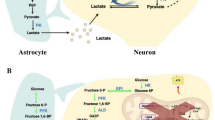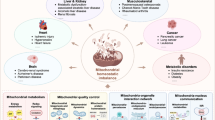Abstract.
The serine/threonine kinase glycogen synthase kinase-3 (GSK-3) was initially identified as a key regulator of insulin-dependent glycogen synthesis. GSK-3 was subsequently shown to function in a wide range of cellular processes including differentiation, growth, motility and apoptosis. Aberrant regulation of GSK-3 has been implicated in a range of human pathologies including Alzheimer’s disease, non-insulin-dependent diabetes mellitus (NIDDM) and cancer. As a consequence, the regulation of GSK-3 and the therapeutic potential of GSK-3 inhibitors have become key areas of investigation. This review will focus on the mechanisms of GSK-3 regulation, with emphasis on modulation by upstream signals, control of substrate specificity and GSK-3 localisation. The details of these mechanisms will be discussed in the context of specific signalling pathways.
Similar content being viewed by others
Author information
Authors and Affiliations
Corresponding author
Additional information
Received 30 January 2007; received after revision 5 March 2007; accepted 16 April 2007
Rights and permissions
About this article
Cite this article
Forde, J.E., Dale, T.C. Glycogen synthase kinase 3: A key regulator of cellular fate. Cell. Mol. Life Sci. 64, 1930–1944 (2007). https://doi.org/10.1007/s00018-007-7045-7
Published:
Issue Date:
DOI: https://doi.org/10.1007/s00018-007-7045-7




